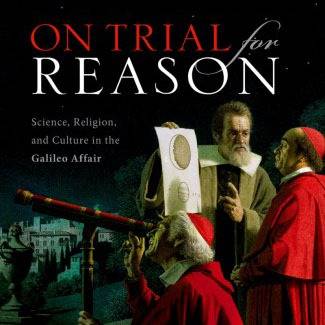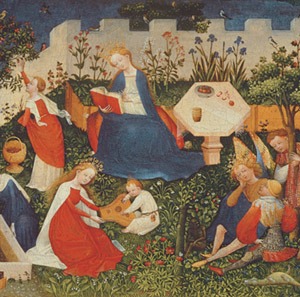Contemporary African Christianity encompasses at least two profoundly different conceptions of religion, with important implications for development and modernity on the continent. In his new book, Paul Gifford, emeritus professor of SOAS, University of London, explores these different types of Christianity and their impact. More details about the book here.
In your book, you write that not enough effort has gone into establishing exactly what African Christianity is. Why?
A good deal of the writing about African Christianity is done by Christian theologians or members of churches themselves, which is natural enough, for it is they who have the greatest interest in the topic. But theologians and committed Christians already have an idea of what constitutes (or should constitute) Christianity and therefore presume a good deal, or bring to their work fairly definite assumptions which lead them to focus on familiar even reassuring aspects. Anthropologists cover various aspects of Christianity more neutrally, but they tend to focus on individual instances and steer clear of generalising. There are some generalists who write about "the emerging Christianity of the South" but they tend to be Western academics whose experience of Africa may be limited. This book builds on my wide experience of Africa to describe what is the case rather than what must be the case, and I have chosen to illustrate the diversity within African Christianity and their different effects, through a comparison between Pentecostalism (broadly understood) and Roman Catholicism.
You talk about the “enchanted” religious imagination – a focus on spirits, demons, and witchcraft. Why is this so prevalent?
I argue that this enchanted religious imagination is perhaps the most salient characteristic of Pentecostal churches generally, yet goes largely unremarked. Why is it so prevalent? It seems that all religions have historically put great stress on spiritual agency in the everyday world. It is in the West, as a result of the Renaissance, Reformation, more immediately the scientific revolution of the seventeenth century and its eventual application in the later stage of the industrial revolution, that this "spirit-focus" has gradually been eroded in the process described by Weber as "disenchantment". It is Western societies that have undergone this "secularisation", so in many ways it is religion in the West that is the odd one out.
What effect does this prevalence of the supernatural in religion have on society and on believers? How does it impact development?
It seems to me that this is a question well worth asking, but it seldom is. I argue, from particular cases, that a stress on spiritual agency seems to have three effects important for development. First, it tends to reduce human agency, because if we are at the mercy of countless spiritual forces, despair or at least resignation to fate seems the most appropriate response. How much moral responsibility can one have in such a universe? Second, since religion of this kind tends to see malevolent spirits acting through family and friends, it is destructive of the social capital that seems essential for development. Thirdly, it undermines the functional rationality that seems to underpin modern scientific thinking and could almost define modernity: means-ends or single-end rationality or instrumental efficiency through the use of objective criteria. When each activity is endowed with a single aim or single criterion, it makes it possible to judge, assess and hence improve efficiency. So I am suggesting that there is a prima facie case that the "enchanted imagination" militates against the scientific mentality which underpins so much of modernity.
Your book also examines the way that “official” Christianity is enmeshed in development in Africa. Could you expand on that?
The mainline or historic or mission churches in Africa have always been involved in development, especially through schools and health clinics. In recent years this development focus has not only continued, but increased. In 2009 the Catholic Church claimed over 12,000 Catholic infant schools, 33,000 primary schools, and almost 10,000 secondary schools, plus about twenty universities. In the area of health, in 2010 the Catholic Church operated 16,178 health centres, including 1,074 hospitals, 5,373 out-patient clinics, 186 leper colonies, 753 homes for the elderly and the physically and mentally disabled, 979 orphanages, and 2,947 educational and rehabilitation centres. No other organization can match this involvement in development. And that is not all. In recent years this involvement has diversified into every imaginable kind of development: for example, rehabilitation of the justice system, strengthening food production, micro-finance, nutrition outreach, water sanitation, HIV and AIDS education, conflict resolution and agricultural productivity. I argue that this is partially caused by the availability of funds. All Africa’s mainline churches are finding it harder to access the funds traditionally available from their founding churches as churches in the West generally decline. But the lack of funding from religious bodies is offset by major Western donors (like USAID or DfID or the EU) seeking African partners for their development schemes. The churches, with their functioning structures, extensive grassroots membership and often considerable moral authority, are ideal development partners. This aid money is not for evangelisation or narrowly religious activity, but for development and relief. A perfect example is the American Catholic Medical Mission Board (CMMB). In 1999 the CMMB formed a partnership with the pharmaceuticals giant Bristol-Myers Squibb. Through this partnership, in 2012 the CMMB distributed $US1 billion of pharmaceuticals and medical supplies to the developing world, a good part to Africa. The training, organisation and management necessary to handle such grants to the level required by Western donors have necessitated a restructuring and professionalizing of the recipient Catholic institutions and refocusing of their priorities.
Is it a bad thing for religion to be so bound up in everything from conflict resolution to human rights?
Not at all. What the churches are doing in all these fields of development is admirable. I have argued that the Catholic Church is the most involved of all, the biggest development agency on the continent. However, I point out that even if one holds that development is an integral part of religion properly understood, religion is not just development. Defining religion is not easy, but most working definitions would include some reference to a super-mundane level of reality. To reduce churches to development agencies is to change their nature as traditionally understood. To the extent that churches involve themselves in development there is the danger that they do not meet what many Africans would consider their properly "religious" needs.
Does this “official” religion address the religious needs of African citizens? What are those needs?
Every thing depends on what you understand as "needs". If you imagine the world as a struggle with spiritual forces which are out to thwart your glorious destiny, to have any appeal your religion must neutralise the forces aiming to do you harm and ensure their benevolence. For such Christians, the official Catholic Church is of little use, for its official stance is that such forces do not exist. That has effectively been the approach of all the mainline churches in Africa; ignore that mindset, hoping that it would just disappear over time. But it hasn’t disappeared, and the pastoral inadequacy of this policy is obvious. Of course many Catholics experiencing reality in this enchanted way remain Catholics and have these "religious" needs met quietly elsewhere. But countless others have left the Catholic Church, primarily to join Pentecostal churches, so many of which have their main aim to address precisely these needs: identifying the spirits responsible for setbacks and misfortunes, and neutralising them.
Overall, what kind of impact does Christianity have on development in Africa?
As I have said, I argue that it is too simplistic to talk about a single "Christianity" in Africa. I have made my point by establishing (at least) two Christianities, one the enchanted form that sees spiritual forces operative everywhere and aims to address them; the other the "internally secularised" or "NGO-ised" form that dedicates itself to development. Of course the "internally secularised" form has an enormous impact on development. However, I argue that the "enchanted" form, in the ways I have explained, does not help development or help to bring Africa into the modern world.
There have been various reports about immigrant churches in the UK exploiting vulnerable people for financial contributions. Are those concerns warranted?
Virtually all Pentecostal churches subscribe to the "faith gospel", or the idea that a Christian should be healthy and rich, and the way to this health and wealth is faith, most often understood as "seed faith", or planting so that you can reap. Planting means giving to God – which effectively means giving to the church or the pastor. Not all churches stress this element to dangerous levels, but it is present in virtually all Pentecostal churches to some degree because this is the motor that has driven this whole Pentecostal explosion. All this activity has to be paid for, as well as a whole new class, that of the church founder-leader-owner. However in not a few cases, churches take this idea to staggering levels, preaching abundant wealth through abundant offerings. In these churches the opulence of the pastor is taken as proof that the doctrine works. I think one may legitimately have concerns in these cases.

